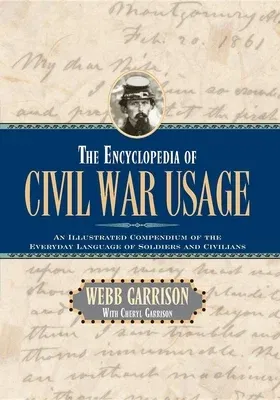There are few systematic guides to the language used by the generation
that fought the American Civil War. In the 150 years since the great
conflict, our language has changed, and as meanings have become obscure
or lost, links with this vibrant past have dissolved and much of that
which had meaning to our forefathers no longer has the same meaning to
us.
What did it mean to cross the bar? What did it mean to see the elephant
or to go South? Why did the armies have so-called ninety-day men and
hundred-day men? What were soldiers supposed to do when their commander
shouted, Let her go, Gallagher? How did one pay tribute to Neptune? What
was a picket pin? Could one make a passable meal of possum beer and
secession bread? How did one vibrate the lines, and why would anyone
want to attempt such a maneuver?
To address this need, Webb Garrison has pored over his notes from more
than thirty years of research and study to produce this dictionary and
encyclopedia of words and phrases (including nicknames and slang)
commonly used during the war. Where appropriate, examples and anecdotes
are included to illustrate meanings. Often overlooked naval terms and
esoteric formal and informal military expressions are addressed as well
as short descriptions of oceangoing vessels and river craft.
More than 2,500 entries and 250 illustrations cover the terms,
equipment, and organization of the three million soldiers who fought in
the war.

